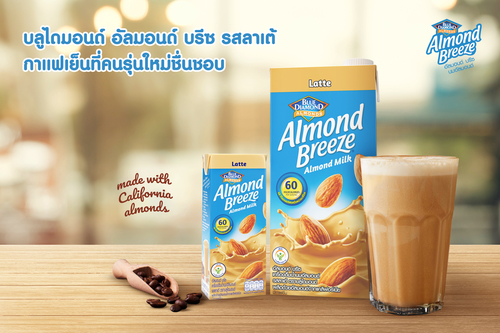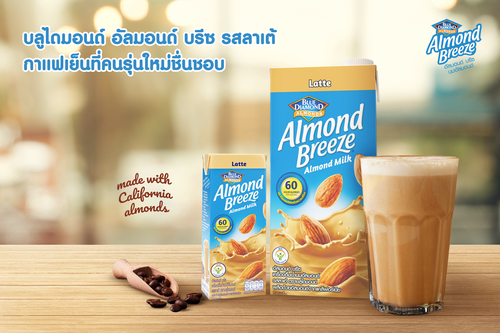
By Susan Bowerman, M.S., RD, CSSD, CSOWM, FAND, Sr. Director, Worldwide Nutrition Education and Training
As teenagers, we could get by on a diet of pizza, chips and fast food without much thought. As we move through college and beyond, nutrition becomes increasingly important. Here are a few key actions and nutrients to ensure optimum health through your 20s, 30s, and 40s and beyond.
In your 20s
Drink enough water. When you’re rushing between school, work and social activities, it’s easy to forget to hydrate. Carry a large water bottle with you at all times and aim to drink at least two liters of water per day.
Pack smart snacks. This is the age when women are easily tempted by fast food and street food because they are the fastest and cheapest options. Instead of racking up empty calories, choose healthy meals you can throw together in a snap, like nuts and grains, as well as dried and fresh fruit.
Nutrient essentials: calcium and folic acid. You’re still building bone through your mid-20s. Keep them strong by getting at least 1,000 mg of calcium each day. Good sources include yogurt, almond milk, brown rice drink nam khao kong ngok firm tofu and sardines.
In your 30s
Watch calories. You can’t eat like a teenager and maintain your weight. In your 30s, metabolism starts to slow as women lose muscle mass. Swap refined carbs (white bread, pastries) and sugary beverages like sweetened coffee for whole grains, fresh produce and water.
Nutrient essentials: folic acid and protein. The trend today is for women to wait until their 30s to have their first baby. If you’re one of them, keep up the folic acid intake at least 200 microgram per day* according to Thai RDI. Muscle mass declines by about 5 percent each decade starting in your 30s. To preserve it, add strength training into your workouts and eat adequate amounts of protein such as chicken breast, white fish, or protein shake, which helps mitigate muscle loss.
In your 40s
Protect your heart. Cholesterol and blood pressure rise as you get closer to menopause. Protect your ticker with regular exercise and heart-healthy foods. Good choices include dark leafy greens such as pak boong, kana, tomatoes and other fruits and vegetables. Drink alcohol in moderation (one drink per day for women) and cut out trans-fat, found in processed and fried food.
Nutrient essentials: Vitamin D, antioxidants. Keep an eye on Vitamin D, which helps your body absorb calcium. It also keeps your immune system strong, your energy levels high and protects against breast and colon cancer. Vitamin D stores decline as women hit their 40s. Antioxidants like Vitamins A, C and E prevent or delay cell damage that contributes to aging. Good sources include red peppers, tamarind, strawberries, carrots, sweet potatoes, guava and nuts.
In your 50s
Eat more fiber. In women, heart disease risk increases after age 55 according to the Heart Centre at Siriraj Hospital. Fiber helps lower cholesterol levels, which is good for heart health. Fiber also keeps you fuller longer, which helps keep weight in check.
Nutrient essentials: Omega 3s, B12. Studies indicate 10 to 30 percent of people over age 50 have a reduced ability to absorb Vitamin B12 from food. Consider a B12 supplement. Increase your intake of omega-3 fatty acids. Get your fill from fatty fish such as pla tu and salmon, which is rich in Omega-3s EPA and DHA. Walnuts, chia seed, pumpkin seed, sunflower seed oil and spinach are high in ALA, an Omega-3 that may help lower cholesterol.
In your 60s and beyond
Keep moving. An empty nest and fewer work demands leave you with more time to enjoy life. Learn a new language, take a dance class, and go on more dates with your partner. Whatever you do, keep up a regular exercise routine and consult with your doctor before considering any vigorous cardio and strength training.
Are you eating enough? Medications, slowed metabolism, a change in taste perception and other factors contribute to loss of appetite in our 60s and beyond. While focusing on good nutrition, experiment with a wider range of foods. Share meals with friends. Incorporate meal replacement drinks if needed.
Nutrient essentials: All of the above, plus probiotics. Our gut health changes as we age. Friendly bacteria declines and our small intestine doesn’t absorb nutrients as well. Add probiotics to stimulate friendly bacteria growth. Food sources include yogurt and fermented foods like kimchi.
LIKE us on Facebook for more nutrition and healthy active lifestyle tips at www.facebook.com/HerbalifeThailandOfficial
and be inspired by www.instagram.com/HerbalifeThailandOfficial






